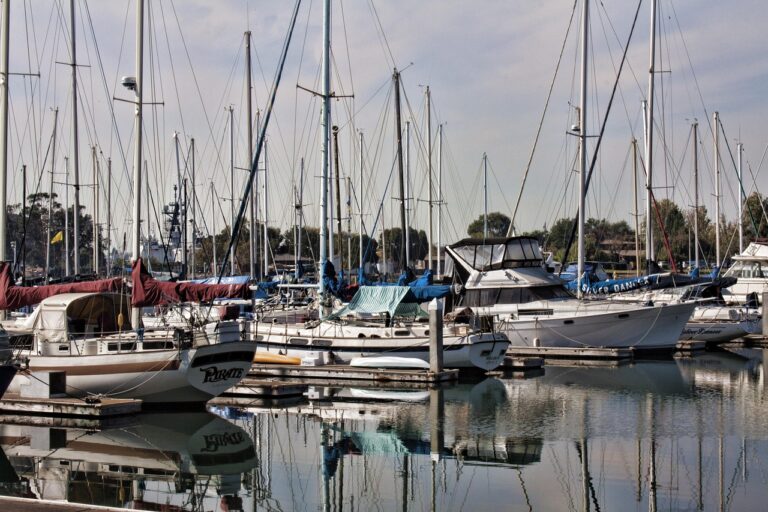Recreational boating is one of the fastest-growing outdoor activities in the United States, with millions of people renting or chartering vessels every year. Whether it is a pontoon boat for a family gathering, a fishing boat for a weekend trip, or a jet ski for water sports, boating provides memorable experiences. However, before you step onto a vessel, the most important question arises:
Do you need a boating license to rent and operate a boat in the U.S.?
The short answer: not always, but in many cases, yes. The reality is more nuanced. Unlike driver’s licenses, there is no single nationwide boating license. Instead, individual states regulate boating through a combination of boater education cards, age-based rules, and, in some cases, temporary permits issued by rental companies.
Understanding these requirements is critical for renters, tourists, and first-time boat operators. Failure to comply may result in rental refusal, fines, or liability in the event of an accident. This guide provides an authoritative overview of U.S. boating license requirements as of 2025, supported by references to official sources such as the U.S. Coast Guard, BoatUS Foundation, and the National Association of State Boating Law Administrators (NASBLA).
Why Boating Certification Exists
Boating is not without risk. According to the U.S. Coast Guard’s 2023 Recreational Boating Statistics, operator inexperience and lack of safety education were leading contributing factors in accidents. The report recorded over 4,000 recreational boating accidents nationwide, resulting in hundreds of fatalities and thousands of injuries.
Certification requirements are designed to reduce these risks by ensuring operators understand:
- Navigation rules and right-of-way.
- Proper use of life jackets and safety equipment.
- Environmental protection practices.
- Emergency procedures, such as man-overboard recovery.
Just as driver’s education reduces traffic accidents, boating education lowers the likelihood of collisions, injuries, and property damage.
Do You Really Need a License? Clarifying the Misconception
The term “boating license” is often misunderstood. Unlike a driver’s license issued by the federal government, there is no universal U.S. boating license. Instead, states require some form of boater education card, also known as a boater safety certificate.
Key distinctions:
- It is not a license that expires. Once obtained, it is usually valid for life.
- It is recognized across state lines. A card from Illinois is generally accepted in Florida.
- It is a proof of education, not experience. Passing the course demonstrates basic knowledge but does not certify advanced skills.
Not all renters must hold one. States may exempt operators born before a certain year or those renting low-horsepower vessels. However, almost every state imposes strict requirements for personal watercraft (PWCs) such as jet skis.
Rental companies typically verify two things:
- The renter’s birth year in relation to state cutoffs.
- Whether the renter holds a valid education card or certificate.
If these do not align with state law, rental companies will refuse to release the vessel.
What Is a Boater Education Card?
A boater education card is an official credential proving you have successfully completed a state-approved boating safety course. Courses are accredited by NASBLA and recognized by state agencies.
Course Content
- Navigation Rules: Right-of-way, overtaking, and safe passing distances.
- Required Equipment: Life jackets, fire extinguishers, navigation lights, signaling devices.
- Emergency Actions: Responding to capsizing, grounding, or man-overboard incidents.
- Environmental Stewardship: Fueling safety, shoreline protection, and invasive species prevention.
- State-Specific Laws: Speed restrictions, no-wake zones, alcohol limits, restricted waterways.
Process to Obtain
- Select an approved provider such as BoatUS Foundation, BoatEd, or BoaterExam.
- Complete online or classroom modules (typically 3–6 hours).
- Pass a multiple-choice exam (minimum passing score usually 80%).
- Receive a temporary digital certificate immediately, followed by a physical card by mail.
- Cost: $30–40. Validity: lifetime in most jurisdictions.
The U.S. Coast Guard strongly recommends that even exempt operators voluntarily complete safety education.
State-by-State Variations
Because each state sets its own boating laws, requirements vary significantly. Below are illustrative examples (accurate as of 2025, but subject to change):
- Florida: Anyone born on or after January 1, 1988, must hold a safety certificate to operate a motorized vessel over 10HP. Temporary certificates are available online for visitors.
- California: By 2025, all operators, regardless of age, must possess a California Boater Card.
- Texas: Operators born on or after September 1, 1993, must complete a safety course.
- New Jersey: A boating safety certificate is mandatory for operating any powered vessel.
- Washington State: Certification is required for vessels with engines of 15HP or greater.
- Illinois: Operators under the age of 35 must hold certification.
- Tennessee: Anyone born on or after January 1, 1989, must pass a state-administered exam.
- Arizona and Wyoming: No statewide certification requirements for most recreational boats.
For official updates, consult the U.S. Coast Guard Boating Safety Division (uscgboating.org) or your state’s boating law administrator.
Temporary Permits and Rental Company Rules
Some states recognize that tourists may not have completed a full boating course. To accommodate this, rental companies in states such as Florida, Virginia, and Hawaii may issue temporary safety certificates after a short on-site exam or briefing. These are typically valid for 24 hours to 7 days.
Rental agencies act as the final checkpoint, ensuring compliance with state laws. They will review:
- The operator’s age and identification.
- Proof of certification.
- Signed liability waivers.
Without meeting these conditions, you will not be permitted to operate the vessel.
Tourists and International Visitors
Domestic Tourists
A boater education card obtained in one state is usually valid in another. For example, a card from Michigan is accepted in Florida.
International Tourists
- Many states accept the International Certificate of Competence (ICC) or equivalent documentation from the visitor’s home country.
- In states where foreign credentials are not recognized, visitors may take an express safety course or temporary permit test on-site.
- Rental companies in tourist hubs such as Miami, Orlando, and Honolulu are accustomed to accommodating international visitors.
Having prior certification is strongly recommended, as it simplifies the rental process and reduces delays.
Does the Vessel Type Affect Certification?
Yes. Certification requirements depend heavily on the type of vessel.
- Non-motorized craft (kayaks, canoes, paddleboards): No certification required.
- Pontoon boats (low horsepower): Requirements vary by state; may depend on the operator’s birth year.
- Motorboats (15HP+): Certification is commonly required, particularly for younger operators.
- Jet skis and PWCs: Universally strict; nearly every state requires certification due to higher accident rates.
- Charter yachts without a captain often require advanced proof beyond a basic safety card, particularly in states with busy waterways.
In general, greater horsepower and speed correlate with stricter oversight.
Renting With a Licensed Captain
When a rental includes a licensed captain, the legal and safety responsibilities transfer to the professional operator. In this case:
- The renter does not need a boater education card.
- Insurance is carried by the chartering company.
- The captain ensures compliance with navigation laws and docking procedures.
This arrangement is common in areas such as South Florida, California, and Hawaii, where charter yachts and excursion boats are popular. Although more expensive, it offers peace of mind, especially for inexperienced renters.
Risks of Operating Without Certification
Operating a vessel without proper certification can lead to serious consequences:
- Rental Refusal: The most immediate outcome.
- Fines and Citations: On-water patrol officers issue penalties starting at $100 and potentially exceeding $500.
- Insurance Denial: If an uncertified operator causes an accident, insurance providers may refuse claims, leaving the operator personally liable.
- Legal Liability: In the event of injuries or reckless operation, charges can escalate to misdemeanors or more severe legal action.
What may appear to be minor “administrative requirements” are in fact critical safeguards for safety and liability protection.
How to Prepare Before Renting
- Check state regulations using USCG Boating Safety or your state authority.
- Confirm with the rental company what documents they require.
- Obtain certification in advance through a recognized provider.
- Carry proof of certification (both physical card and digital copy).
- Review local rules such as no-wake zones and alcohol restrictions.
FAQs
- What if I am from another country?
Most states accept international boating credentials or allow visitors to take short express courses. - How long does it take to get certified?
Most online courses can be completed in 3–6 hours. - Can multiple people operate the rental vessel?
Yes, but each operator must be certified as required by state law. - Do boater education cards expire?
Generally no. Once issued, they remain valid for life. - What is the minimum age to rent a boat?
This varies by state and rental company. Some states allow 16-year-olds with certification, but most companies set the minimum at 18–21 years. - Can passengers drink alcohol on board?
In many states, passengers may consume alcohol, but the operator must remain under the legal BAC limit (commonly 0.08). - What happens if I cause an accident without certification?
You may face fines, loss of insurance coverage, and legal liability for damages or injuries.
Disclaimer
Before renting a boat, take the time to review local regulations, complete an approved safety course, and ensure you hold the correct certification. Doing so protects you, your passengers, and others on the water.
This article is for informational purposes only. Regulations vary by state and may change. Always consult official sources such as the U.S. Coast Guard Boating Safety Division and state boating authorities for the most current requirements.


